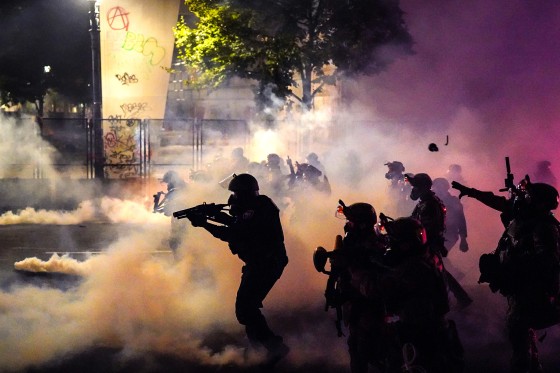WASHINGTON — Democratic lawmakers are mounting a new attempt to ensure that federal officials, including thousands of law enforcement officers, can be individually sued for constitutional violations such as the use of excessive force.
Sen. Sheldon Whitehouse, D-R.I., and Rep. Hank Johnson, D-Ga., are reintroducing legislation in the Senate on Thursday and the House on Friday that would amend a post-Civil War-era law that allowed state and local officials to be sued for civil rights violations to make it clear that federal officials are covered, too.
The move comes after the Supreme Court has made it almost impossible to sue federal officials, most recently in a 2022 ruling that said Border Patrol agents cannot be sued individually.
"Public officials at all levels of government, including law enforcement, should have a clear, fair standard of accountability when they break the law," Whitehouse said in a statement.
Johnson, who is introducing the legislation in the House alongside Rep. Jamie Raskin, D-Md., said the bill "fixes the issue by increasing judicial accountability for unlawful federal government action."
As NBC News reported last year, the Supreme Court has for years been retreating from a 1971 ruling called Bivens v. Six Unknown Named Agents, which concluded federal officials could be sued.
So-called Bivens claims became the only way to bring such suits, but the Supreme Court repeatedly refused to allow them to move forward.
In the most recent case, the court ruled 6-3 that individual Border Patrol agents generally cannot be sued for constitutional violations.
In the 12 months after that ruling, lower courts cited it 228 times in a variety of cases against all kinds of federal officials, NBC News found. In 195 of those cases, constitutional claims were dismissed.
Short of suing individual officers, current options are limited. People can instead sue the federal government directly under a law called the Federal Tort Claims Act, but damages there are limited, and there is no chance of a jury trial.
The legislation, which has previously failed to pass, is less than one page long. It would amend the law by simply adding that officials of the United States can be sued in addition to state and local officials.

